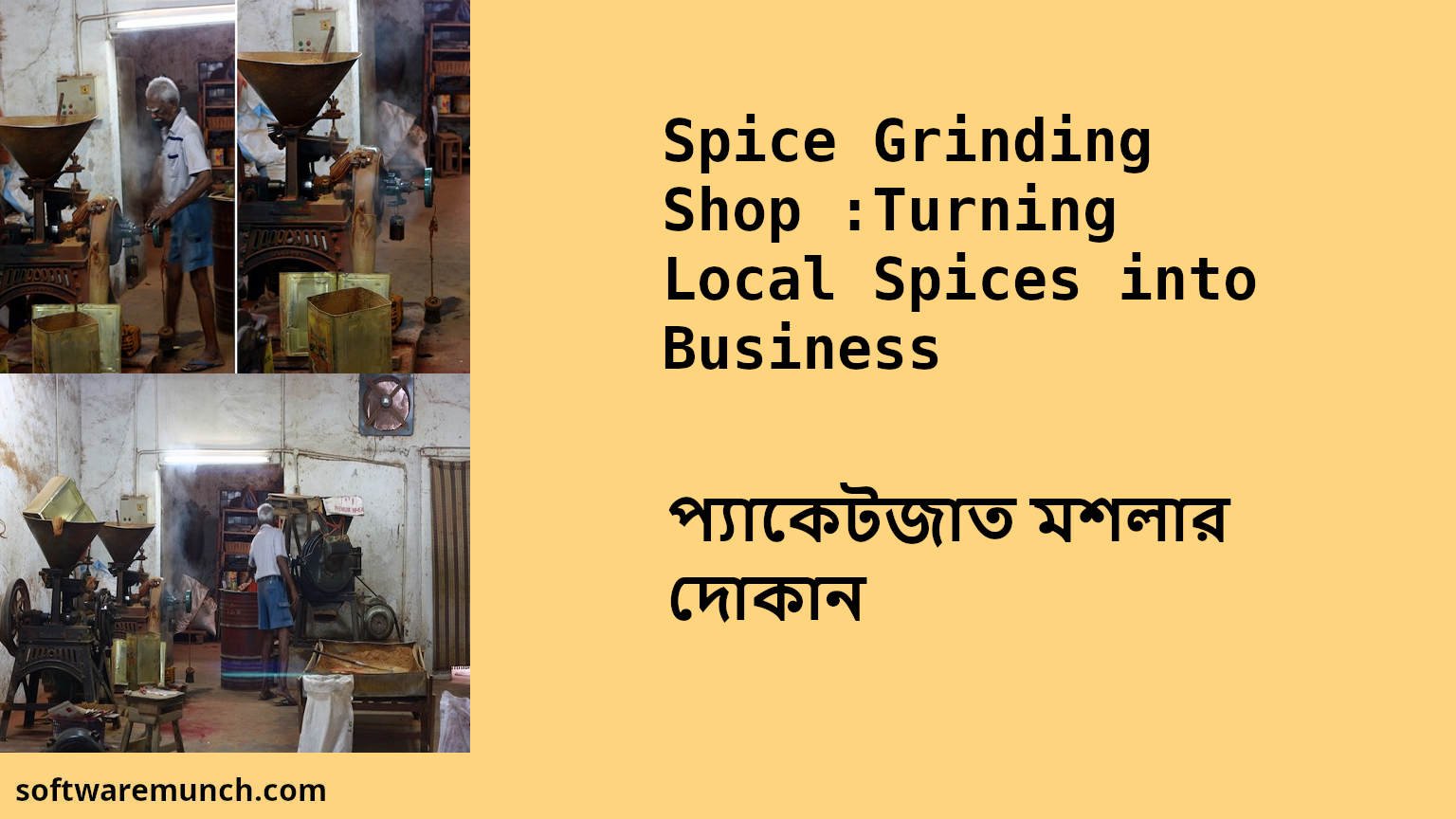In every Indian home food is incomplete without the spices used in them. From the simple dal to a grand wedding feast, spices like haldi, mirch, jeera, dhania and garam masala , all give the food its taste and smell. Many families in villages buy whole spices and grind them at home but slowly people are getting busy. They prefer ready made ground spices that will save time. This is where a small spice grinding shop can become a very good business in a small town or a village.
Why Spice Grinding is a good Idea
Starting a spice grinding shop does not need very high education or computer knowledge. People always need masalas. Either it is turmeric for daily cooking, red chilli for frying or garam masala for a special dish, the demand never goes away. If the quality is pure and fresh customers will keep coming back.
Spices commonly Used in Indian Cooking
Before starting this business you should know the main spices that are used in almost every household for cooking these are:
- Haldi ( Turmeric) is used for taste, color and health benefits.
- Mirch ( Red Chilli ) is used or spiciness and flavor.
- Jeera (Cumin ): For tadka and curries.
- Dhania powder (Coriander seeds powder) is used for all kind curries with dhania powder.
- Methi (Fenugreek) is used for pickles and curries.
- Mustard seeds and powder used in kasundi , mustard fish preparation etc
- Garam Masala Mix is a mixture of cloves, cardamom, cinnamon, etc used in non vegetarian and paneer based dishes.
In Assam and Bengal, people also use panch phoron (five spice mix) – jeera, kalonji, methi, saunf and mustard seeds , which has a special demand in the local market.
Learning the Work
Grinding spices is not very difficult, but it needs some practice. You should first learn:
- How to dry the spices properly so that they do not spoil before or after grinding.
- How to clean them properly before grinding.
- How to use a small grinder machine safely.
- How to pack them in plastic or paper packets properly with air tight seals.
Learning can be done from someone who already has a small grinding shop. One or two months of helping them is enough to understand the whole process.
Investment needed
For a small spice grinding shop, the main cost will be procuring these things:
- A small grinder machine – Rs25000 to Rs 40000 depending on the size.
- Weighing machines ( different sizes )– Rs2000 to Rs3000.
- Sealing machine for packets Rs5000.
- plastic packets and labels – Rs3000 to Rs5000 to start with.
- shop rent and license cost – depends on location.
So with around Rs60000 to Rs80000, one can start a small spice grinding business. If money is a problem local self help groups or microfinance companies can provide small loans.
Getting Raw spices
The best way to get raw materials is directly from farmers in your district. like in Assam, turmeric and chillies are grown in many villages. Buying directly will be cheaper and fresher. If not you can buy from the wholesale market in towns like Silchar, Guwahati or hailakandi.
Licenses and Permission
Even though this is a small business, food products need FSSAI registration. For very small shops, you can apply for a basic FSSAI license which will cost very little. This gives trust to customers that the product is safe. You may also need a trade license from the local panchayat or municipal office.
How to sell the items?
At first you can sell in your own shop and nearby grocery shops. Later, you can supply to kirana stores, vegetable vendors, and small sweet shops. You can also sell during village markets ( haat bazaars etc). If your packing is neat and the smell is fresh, people will prefer your masalas over big company packets.
Value Added Services
To earn a little extra, you can also:
- Make special mixes like garam masala, sambar masala or fish curry masala.
- sell whole spices along with ground ones.
- Take orders for grinding others’ spices if they bring from home.
Problems You may face
Like any business, spice grinding also has some struggles:
- Machines may break down, so you must keep some savings for repairs.
- Damp weather can spoil spices if not dried properly in the beginning.
- Big company brands may compete with you, so you need to keep your quality fresh and pure.
If you stay honest and provide pure spices, slowly your name will spread in the market.
A Small Example
Badruddin ajmal is a young man from Karimganj town. He started with one grinder machine, buying turmeric and chillies from nearby farmers. He packed them in small plastic bags and sold them to shops in the bazaar. At first he made little profit but within a year, many people trusted his “fresh masala” and asked for his brand. Now, his shop runs well, and he even supplies to nearby villages and towns .
Final Words
A spice grinding shop is a business that fits very well in rural and semi urban areas. It is not very costly, it gives steady demand and it can grow slowly into a proper brand. With hard work, good quality, and honest dealing anyone can make a name in the market.
